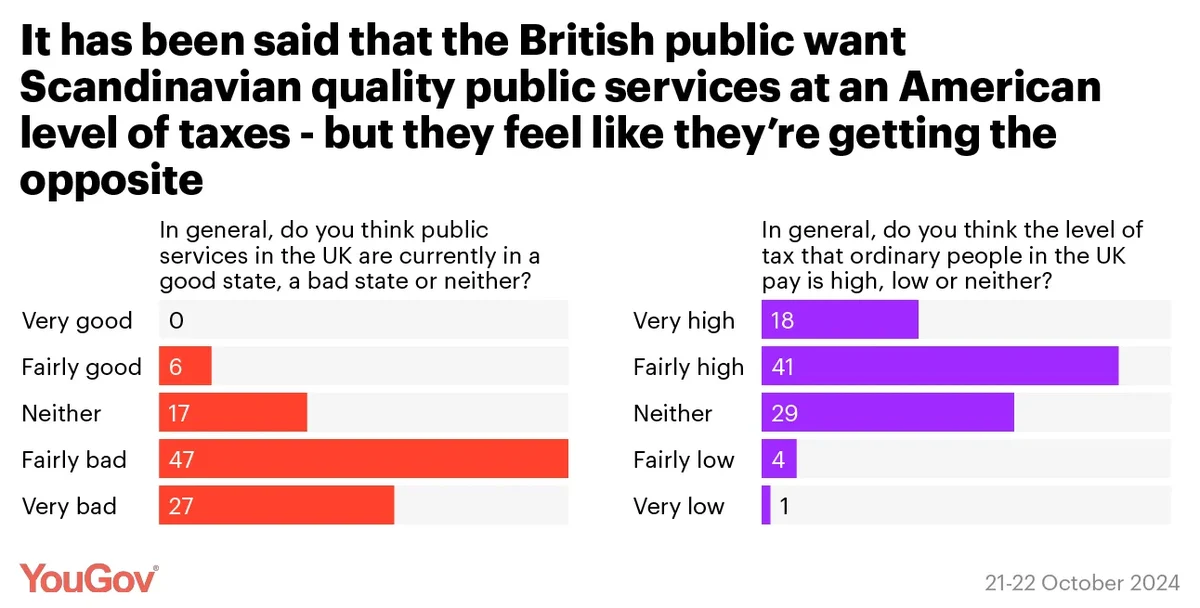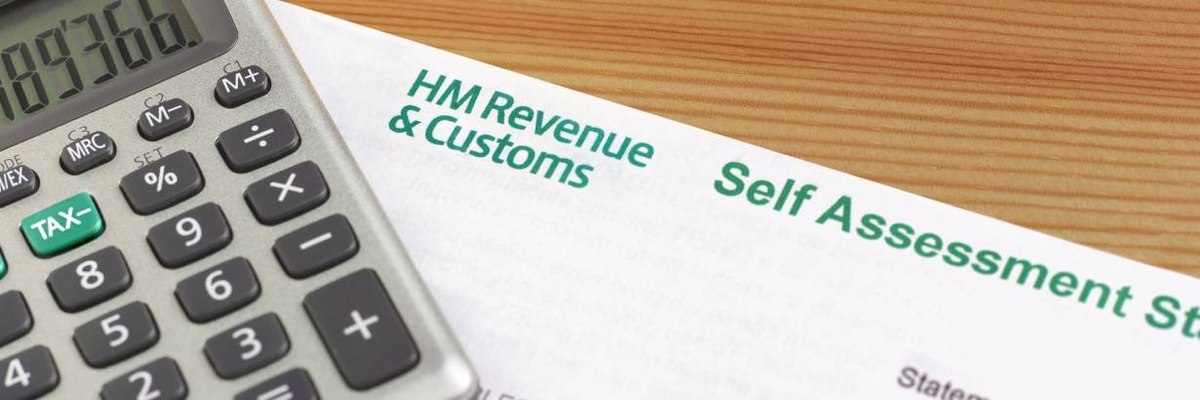The only measures the public back in order to increase funding for public services are greater taxes on businesses and the rich
It has been said that the British public want Scandinavian quality public services at an American level of taxes.
Ironically, at present the public seem to think they’re getting the opposite – 59% of Britons think that taxes are high, but only 6% think public services are in good shape.

The implication of the adage is that Britons need to pick a lane – high taxes but high funding for services as in Scandinavia, or low taxes and low funding for services as in the USA.
Given a question that simulates this choice, the public are more likely to want higher taxes and more funding (31%) than lower taxes and less funding (20%) – although 30% would opt to keep things as they are.
Do Britons think funding is the biggest issue facing public services?
Of course, much of this does assume that the biggest problem faced by public services is funding levels – but do the public see it that way?
In fact, when asked which of 10 issues they think are the biggest causes of problems faced by public services, the most common answer by a significant margin is “poor management/leadership within public services”, at 49%.
“Not enough funding” does come second, however, at 34%, alongside “bad government policy” on 33%.
Poor leadership with the number one choice among Tory, Lib Dem and Reform UK voters, whereas funding problems was the most common diagnosis among Labour voters.
What taxes are Britons willing to see increased to pay for public services?
Labour committed in their election manifesto to not raise the main taxes that working people pay – that is to say, income tax, national insurance and VAT.
But Britons are divided on whether public services can be improved in such circumstances – while 42% think that the issues faced by public services can realistically be solved without raising the taxes that ordinary people pay, 36% say this is unrealistic.
If the big three taxes can’t be touched, then this leaves taxes on the rich and businesses as the main tax levers that Labour can pull (outside of stealth taxes like freezing income tax thresholds, which the party is reportedly exploring).
Britons are doubtful that public services can be fixed solely by increasing taxes on the rich (38%) or businesses (25%), although they do tend to think this is possible solely by increasing taxes on businesses and the rich – by 48% to 34%.
Away from tax options, few (14%) think that increasing government borrowing alone has a realistic prospect of raising enough money to right public services.
Likewise, when asked what taxes they would support increasing in order to improve public services, the only ones Britons would countenance raising are those that affect businesses and the wealthy.
Eight in ten (82%) would support increasing income tax for the super-rich, and 75% say the same of the simply ‘rich’. A majority (59%) would get behind raising corporation tax, and a plurality of 43% would back raising capital gains tax (compared to 33% opposed).
By contrast, there is little support for increasing income tax for all working Britons (15%), national insurance (22%), or VAT (11%). Nor would people endorse alternative adjustments like making savings by cutting unemployment benefits (39%), increasing borrowing (27%) or freezing the state pension (15%).
Britons tend to back taxing the super-rich, even if this loses revenue overall
While it is clear that Britons are overwhelmingly in favour of increasing taxes on the super-rich, there is a perennial debate over whether such tax rises actually lose more money than they raise. Some claim that such a move would cause the super rich to up sticks and leave the UK, taking their taxable income with them.
Most Britons are sceptical of claims that lower tax rates on the super rich counterintuitively bring in more money, however – 57% think that more revenue would be generated by increasing taxes on the super rich, compared to only 15% who think more would be made by cutting taxes on the most wealthy citizens.
Ultimately, however, this may be beside the point for many Britons. When explicitly asked what their preference would be if raising taxes on the super rich definitely would reduce revenue to the exchequer, 44% of Britons would still support imposing such tax increases, outnumbering the 34% would be opposed.
While Britons may see the UK as a high tax country, do they recognise how that relates to other nations?
The idea from the adage that Scandinavia has high taxes and the US low ones is visibly recognised by the public. Of 14 countries asked about, Britons were the most likely to say that a working person on average earnings in Sweden (39%) or Denmark (37%) is taxed more highly than their British counterpart – indeed these are the only two countries where significantly more people said this than thought a typical British worker is taxed more.
And likewise, the public are most likely to think that an average American worker is taxed less than their British doppelganger (49%).
However the public view does not necessarily correspond with the reality. Analysis of OECD data by the New Statesman shows that Belgians face by far the biggest tax burden – something which is not at all recognised by Britons, of whom only 15% think Belgians pay more in tax compared to 32% who think they pay less. The same is true of the Germans and French, who come second and third on the rankings of tax rates, but are typically seen by Britons as paying less tax rather than more.
By contrast, Switzerland is the country from our selection that Britons were third most likely to think paid higher taxes than us, at 32% - in reality they face significantly lower rates.
See the full results here and here
What do you think about the state of public services, where and if taxes should increase, and everything else? Have your say, join the YouGov panel, and get paid to share your thoughts. Sign up here.
Photo: Getty







